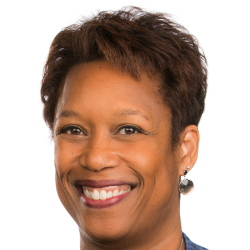Reflections and predictions from a career in the telecom industry.

As I was sharing a last drink with my colleagues in Denver, we raised the possibility of me sharing what I've learned over the years. Now that I'm free from needing anything from the industry, I can say what I really think -- and hopefully provide one last set of useful insights. Some are reflections, some are predictions and some are just things I want to say while I've still got a platform on which to say them.
1. CSPs really, really want to move beyond connectivity, but I'm still not convinced they will. Or should. With the advent of 5G, I'm once again hearing how CSPs will open up their networks so third parties can run their applications on them. I've heard some version of this story at every major network transition point -- probably four to five times -- over the past 19 years. And still, by and large, CSPs remain a connectivity play. I go back and forth on whether they should aspire to be more. As some of them are finding out, media/content is a very different business than telecom. I understand the need for growth, but there's something to be said for the consistent business of being a utility. Being the best utility there is isn't such a bad thing. It may not light The Street on fire, but it's a consistent service that everyone relies on. I don't know that that's altogether a bad thing. I'm told that for various reasons, it will be different this time. I kinda hope that it is, but I'm not holding my breath, nor would I be devastated if it's not.
2. New entrants play a valuable role in lighting a fire under incumbents -- but incumbency is the best.
a. At the beginning, Juniper lit a fire under Cisco. Then Arista lit a fire under them both. They've since become a pretty comfy triopoly in the IP core. All the best to the challengers, of course.
b. Now it's the born-in-the-cloud companies vs. traditional network equipment providers. This one might have a different outcome since there's plenty to go around. Especially with THE EDGE! That said, I remain skeptical anyone will trust the core of the largest networks to anything but good old-fashioned big iron anytime soon (and I'm not talking about a server on steroids, people).
c. If I were a betting person, and I'm not, I would bet that Cisco will still be Cisco in ten years, as will Ericsson and Nokia. (If only I had a nickel for every company proclaiming to be a Cisco-killer, I'd be able to retire.) They might be smaller than they are today, they might have a more limited portfolio, but the devil you know is always easier to dance with than the devil you don't. Especially if the "devil you don't" wants you to learn new stuff.
3. While conferences in some of the world's greatest cities (hello Barcelona, Beijing, Berlin, Sydney and Vancouver) didn't hurt, I am confident in the power of open source to transform how software is developed and services are delivered. It just makes too much sense. Those that resist do so at their own peril. I really believe that. So get involved. I promise you won't regret it. Getting off my soap box now...
4. Telecom ≠ IT. Yes, the hyperscalers have shown the way on a lot of things -- how to leverage white boxes, extreme automation, everything cloud-native. Let me be very clear here, AT&T, Vodafone and China Mobile and their brethren are NOT Amazon, Microsoft or Google. In so many ways, the telecom business is different than the public cloud business. Regulations are different, customer expectations are different (think enterprises, not consumers) -- the stakes are different (911!). And still, I will take the telecom industry to task for sometimes hiding behind these differences. While it is reasonable to move deliberately, it is not reasonable to dismiss the new out of hand saying "it'll never work here". Of course not everything will work for CSPs, but a lot of it will -- and "will" is just what is needed. I applaud the CSPs who are leading the charge despite the unknowns.
5. Analyst ≠ journalists. OK, maybe a little. We both ask who, what, where, when, why and how and we both write. A lot. Journalists tend to focus on the here and now, and analysts are a bit more forward-looking (huge generalization, of course, as many journalists do look ahead, and analysts respond to current news). "So what's the difference between Light Reading and Heavy Reading?," I was asked at least 173 times over the past five years. My response always included something along the lines of, "We're the deep thinkers, hence the 'Heavy,' " which was nearly always followed by an audible eye roll. Anyhow, the industry needs both. I admire how my journalist brethren can churn out quality content on such a rapid, regular cadence. I like to chew on things a bit before putting them out into the world, and the analyst role -- at least the ones I've had -- gave me that luxury.
6. Legacy systems and processes will continue to hamper real transformation. I covered OSS/BSS for a while in the second half of the aughts (is that what we call 2006-2010?) and it quickly became apparent just how huge, complex and truly beastly the back office estate is for most CSPs. As long as those systems are needed to keep the lights on, CSPs will have to play both sides of the physical/virtual story. Integration? Forget it. Better to migrate customers to the new ASAP and let the old die a quiet death. Trying to make it all work together will only lead to more gray hair and frustration.
7. The technologies may change, but the desired outcomes remain the same for CSPs: operate the network as efficiently as possible (minimize costs) and deliver services that people are willing to pay money for (generate revenue). It seems simple because it is. See, I just saved a bunch of you the time and expense of an MBA. (Just kidding, it is totally worth getting! Shout out to Kellogg!) Anyone who can't articulate how his/her company's product will do help CSPs do one or both of these should go back to the drawing board. The cloud is just the new mainframe (spread the cost of resources across multiple tenants). MANO is just the new OSS. Progress is, of course, good (more stuff for less money), but we shouldn't lose sight of the basics because we're blinded by the buzzwords. (Kubernetes! DevOps! VIRTUAL REALITY!)
8. Forecasting and market share: for some, the best part of being an analyst. For me, not so much.
a. Every quarter it was the same: dancing around estimates (up by maybe 4%, now down 1! -- "just tell me what you can tell me and we could both save a lot of time!" -- sorry -- that's been building up inside me since 2001. Getting yelled at if a company went down a point. "What do you mean we fell to number three. Can you prove company X did y? About as well as I can prove you did z." To those who wondered then and now, when it comes to the numbers you give me I trust all of you equally -- meaning, mostly, but not completely.
b. Forecasting is as much an art as a science. Lots of inputs to a forecast model are useful only if they capture the right variables. I was much more interested in what the inputs should be, and why, than what the output of the model was. Not to downgrade the importance of having numbers -- because that's how one keeps score -- but the direction and pace of growth/decline, to me, tell a good chunk of the story.
9. Nothing beats face time. Even if all my conferences weren't in some of the world's greatest cities (see number three above), I still would have attended just as many (around eight per year, give or take an analyst summit or two). Early on I liked going to conferences because I could learn so much from the industry's best and brightest. As I got a little brighter myself, I started presenting at these conferences. I loved sharing what I knew, but equally loved being challenged by the audience -- another form of learning, IMHO. The face-to-face meetings with clients and prospects with a new solution or story or idea to run past me -- (nearly) always fun. The analyst game, like most, is above all a relationship business, and nothing cements a relationship like a meal overlooking some body of water in a faraway place while we're all fighting jet lag. I sincerely believe I would not have had the success I had without spending so many hours on a plane.
10. There are a tremendous number of really smart, talented, driven, friendly people in our industry. I've had the good fortune to meet hundreds of them and develop relationships with dozens of them -- many of which I'm thankful will remain intact after I shuffle off the telecom stage. I'm so grateful for the generosity -- and the patience -- they've shown me as I've learned about ATM switching, IP routing, OSS/BSS, hardware and software design, open source and cloud-native everything. I'm honored that so many trusted me with their secrets and valued what I wrote and said in my research. The analyst life is not for everyone, but for me, it was ideal. I got to ask lots of questions, meet great people, see great places -- and then share what I learned with my clients so they could make better business decisions. Maya Angelou once said you may forget what people said or did, but you'll never forget how they made you feel. I can say that for 19 years, I felt like a valued member of this telecom community. Thanks.
— Roz Roseboro, Principal Analyst, Cloud Infrastructure & Management, Heavy Reading
Read more about:
OmdiaAbout the Author(s)
You May Also Like











